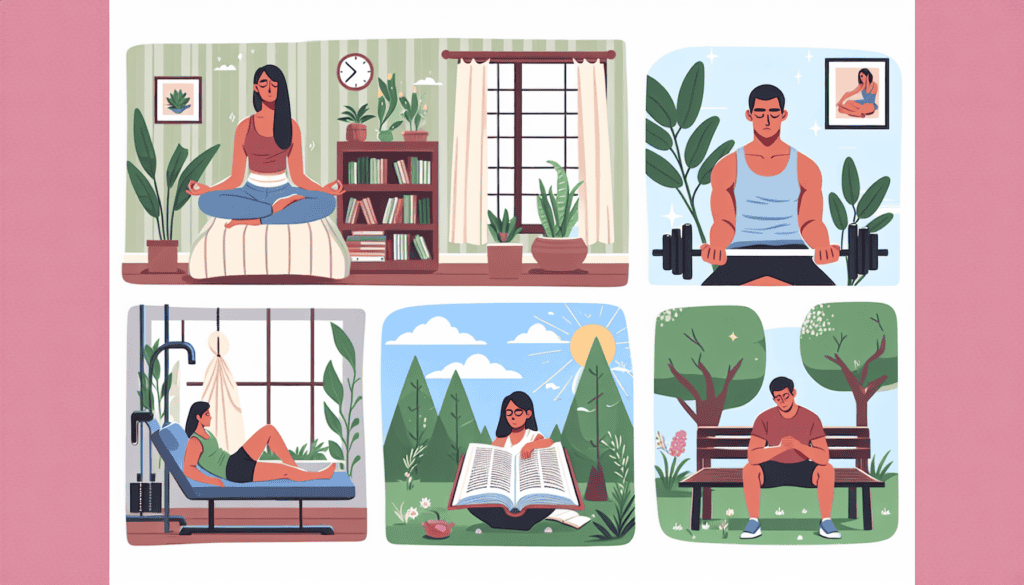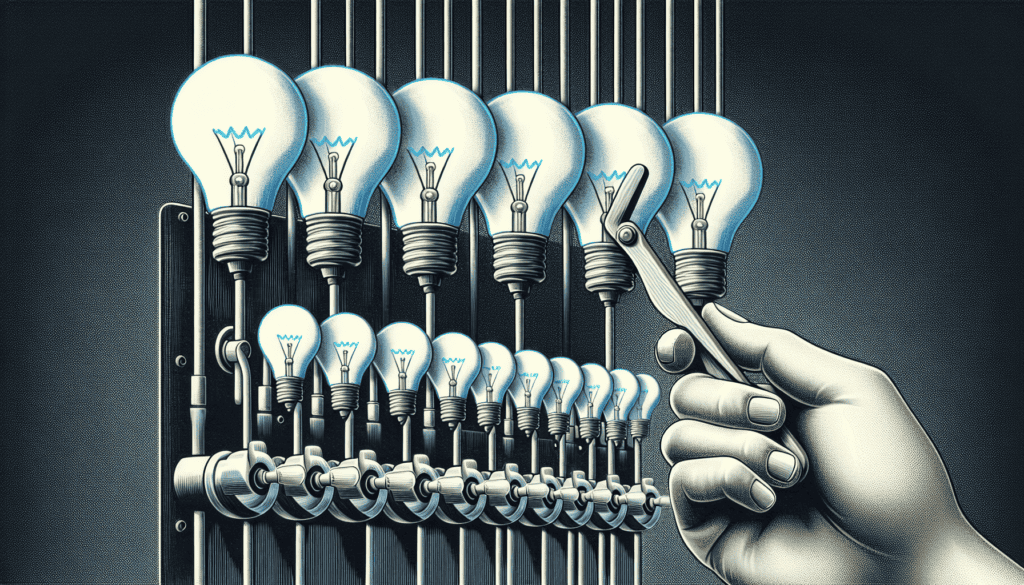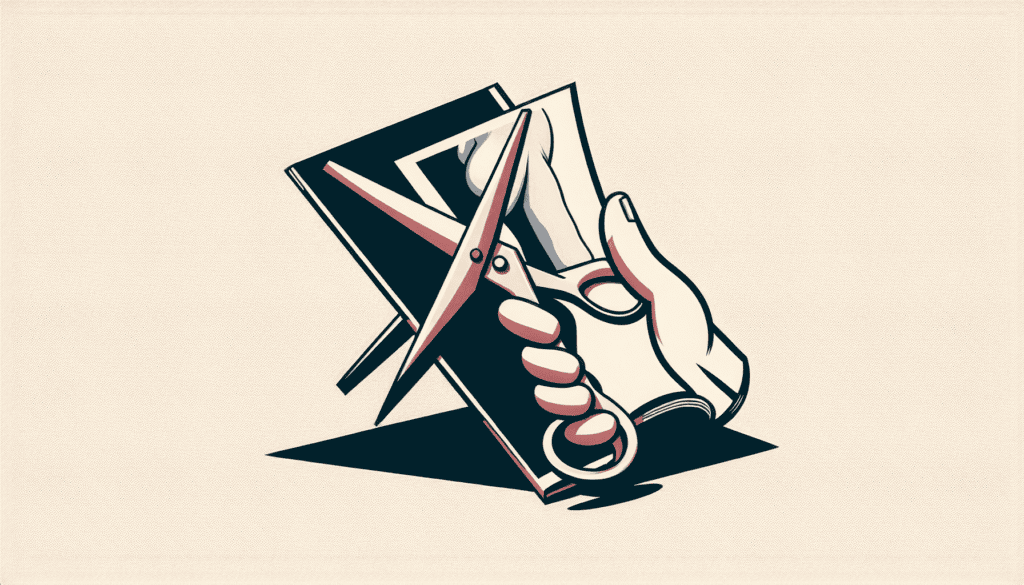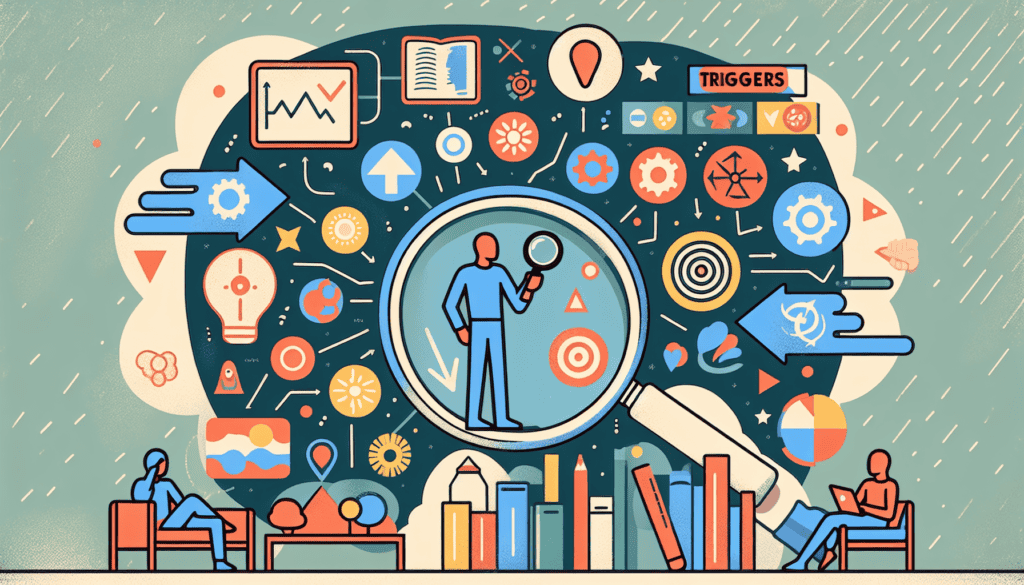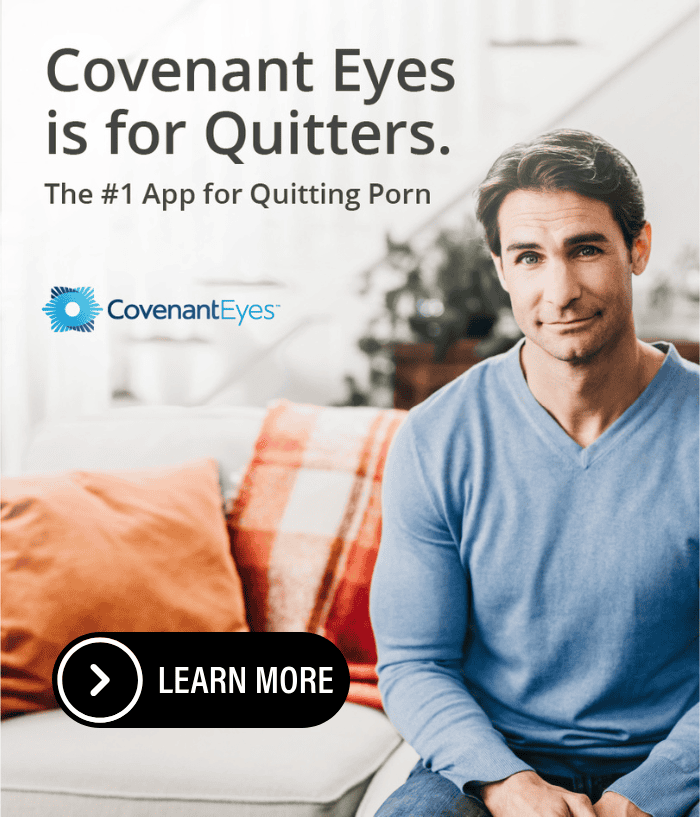Factors for Long-Term Sobriety
Getting the hang of what helps keep someone sober for the long haul is like finding the secret sauce in tackling porn addiction. Two biggies in this recipe—people-power and recovery pads—really make it stick.
Social Support Influence
Being surrounded by a cheering squad, be it family, friends, or even a friendly neighbor, keeps one away from the edge. Folks with this kind of backup score big in hanging on to those sober days (NCBI). A bunch of supportive faces rooting for you can help tip the scales toward better health and fewer ulcers from stress. When you’ve got someone hollering from the bleachers, those tough days seem a bit more bearable.
Having a trusty tribe isn’t just about clapping at your wins. It makes life a tad less lonely and a whole lot more liveable, cutting down the stress monster and handing out virtual high-fives of encouragement.
| What Social Support Gives You | How It Helps You Stay Sober |
|---|---|
| More sober days | Cuts down the substance-use slip-ups |
| Better sticking with treatments | Pumps up the confidence to stay clean |
| Life feels nicer | Makes you feel better about things |
| Less stress | Gives a shoulder to lean on |
Getting some friends on board or checking out a support group can be just what the doctor ordered for bumper-stopping those temptations.
Participation in Recovery Homes
Recovery homes—think of them as halfway houses with attitude—are where camaraderie meets discipline. Living in such spaces while attending Alcoholics Anonymous (AA) often translates into longer-lasting wins against addiction than winging it alone or sticking to standard aftercare offerings (NCBI). Being in a place where everyone’s been there and done that gives you a leg up, sharing stories and swapping survival tips.
These houses are more like live-in therapy zones too. They get you into the swing of things with routines and routines loom large when sobriety’s the goal. Add to that some chats with a counselor or therapist, and you’ve got a recipe for tackling the root causes of addiction head-on.
| What You Get From Recovery Homes | How It Helps You |
|---|---|
| Group Support | Makes you feel less alone |
| Day-to-day structure | Keeps you from drifting |
| Therapy on tap | Digs into why you’re struggling |
Jumping into one of these recovery pads is like laying down some serious commitment bricks on the road to clean living. For anyone wanting to dive deeper—never mind, swap that word out—to peek at what keeps people glued to their sobriety goals, diving into helpful recovery resources? might just be worth your while.
Therapy in Addiction Recovery
Therapy plays a huge part in bouncing back from porn addiction. It’s all about tackling those pesky root causes and coming up with ways to avoid slipping back into old habits.
Getting to the Bottom of It
Figuring out why addiction takes hold is like finding the treasure map to stay clean for good. Therapy helps to dig deep and pull out those hidden issues like trauma, stress, and mental health struggles that can lead to addiction. Sorting these out is golden for anyone itching for a real change in their life (The Walker Center).
There are different kinds of therapy that work wonders in fighting addiction, and they’re more than just a shoulder to lean on. Think Cognitive Behavioral Therapy (CBT), group therapy, and family therapy. They don’t just offer support; they’re super effective in kicking negative thinking to the curb and healing relationships messed up by addiction.
| Type of Therapy | Some of the Good Stuff |
|---|---|
| Cognitive Behavioral Therapy (CBT) | Teaches how to swap out bad thoughts and behaviors |
| Group Therapy | Gives a boost from chatting with folks who get it |
| Family Therapy | Helps to mend and strengthen family ties |
Keeping It Together
Staying on track and avoiding relapse is just as crucial as quitting itself. Therapy’s got your back here, offering tactics for tackling temptation and stress head-on. It’s all about spotting those little signals that you’re teetering before things get out of hand and whipping up a personal plan to dodge those traps (The Walker Center).
For folks dealing with mental health issues as well as addiction, therapy is a double win. Tackling both the addiction and things like anxiety or depression at the same time means having a good shot at turning things around for life.
And don’t forget, having a network of pals you can lean on is massive for keeping clean. Diving into community groups or 12-Step programs gives people a sense of belonging, making it way easier to manage life’s curveballs while getting better (NCBI Bookshelf).
To get more on steering through this whole recovery thing, you can check out what is real recovery like time-wise? and what’s the best advice for a long-term addict?.
Support Systems in Recovery
Building a strong support system is key for everyone tackling the recovery journey from porn addiction. Having a circle of folks to lean on can really tip the scales toward staying clean for the long haul, keeping folks accountable and giving them a push when they need it.
Importance of Support Groups
Support groups are like the glue in the recovery scene. They offer a place where people can voice their highs and lows in a space filled with understanding ears. Giving it a go with recovery programs like AA has shown to boost the chances of sticking to sobriety over time. Those staying in recovery homes who show up for AA gigs or similar group sessions often have better luck staying on the wagon than those who don’t participate as much (NCBI).
These groups aren’t just about feeling better. They’re about learning too. Folks pick up tips and tricks for dealing with cravings and situations that might lead them back down the wrong path. By being a regular at these groups, people build a sense of belonging and shared drive that can really power up their recovery efforts.
Building a Strong Support Network
Hooking up a solid support network means getting connected with therapists, mentors from sobriety meetings, and cherishing ties with family and friends who get what recovery’s all about.
Research in the Journal of Psychoactive Drugs notes how people with a long history with substances, who dove into 12-step gigs and kept tight with loved ones, managed to stay sober for just over a decade on average (Safety Net Recovery). These bonds bring companionship, a cheering squad, and people to keep you on track, making the recovery journey feel a bit less lonesome and overwhelming.
The stats tell us that roughly 75% of those who seek help for substance troubles manage to make a comeback. This highlights how important it is to have those trusted peeps around you (Westwind Recovery®).
Peer backing sets up a space where folks can swap stories and pick up survival strategies from each other.
Building this web of support might mean checking out local group meetings, going online for resources, or finding a buddy to keep each other in check. Making these links can really pump up the determination and dedication needed to keep plugging away at recovery.
In a nutshell, getting tied in with supportive groups and building close-knit relationships ups the odds of staying sober for the long run. For more tips on keeping your recovery engine running, check out how to maintain the motivation for recovery.
Stress Management Techniques
Keeping stress levels in check is a big deal for folks trying to kick a porn addiction. Trying out well-researched methods and sprinkling in some mindfulness can really help you stay the course for the long haul.
Trying Out Research-Backed Methods
Using strategies backed by science can beef up your coping skills, helping fend off any backsliding. Take cognitive-behavioral therapy (CBT), for example. This therapy zeroes in on recognizing and tweaking those pesky thoughts that drag you back to old habits. Therapy lets people dig into what lights up their cravings, making it easier to tackle those feelings head-on.
Group therapy is another solid support option that’s had good outcomes for many. Studies show that people who hang out in groups tend to stay clean longer than those who fly solo. Getting involved with support groups or 12-step programs can build a strong community and keep you on track, which is vital for holding onto sobriety.
It’s super important to keep an eye on how you’re doing and tweak your approach as needed. Keeping tabs on stress, emotional hiccups, and coping methods can reveal patterns and areas that need some work.
| Strategy | Description |
|---|---|
| Cognitive-Behavioral Therapy | Tackling and changing harmful thought patterns |
| Group Therapy | Engaging with peers for shared experiences |
| Support Groups | Regular meet-ups for community backing and encouragement |
Getting into Mindfulness
Mindfulness is a game-changer for folks on the road to recovery. It promotes self-awareness, helping them spot what sets them off, get a grip on their emotions, and recognize thought or behavior patterns that aren’t doing them any favors. This awareness paves the way for more thoughtful reactions to cravings and stress.
Practicing mindfulness means taking note of your thoughts and feelings without being too harsh on yourself. This can stop impulsive reactions, lessening the chance of a setback and improving emotional control. Techniques like meditation, deep breathing, and yoga boost mental health and provide a shield against temptation.
Making mindfulness a part of your everyday life can really buff up your stress management skills. As people get better at understanding their emotional landscape and triggers, they can use their newly-minted strategies to handle these feelings. This builds a solid base for staying clean long-term.
By leaning on solid strategies and embracing mindfulness, people can create powerful tools for stress management and staying sober. These approaches don’t just help keep your emotional balance but are crucial pieces to the larger puzzle of sustaining sobriety.
Behavioral Routines for Sobriety
Establishing Healthy Habits
Kicking a porn habit’s not easy, but setting up some solid routines can be a game-changer for staying clean. You know, the kind that gets you moving and thinking clearer. Like getting out for a walk or hitting a yoga class – they’re good mind and body boosters when you’re trying to ditch unhealthy habits.
Here’s some stuff to consider:
| Habit | Benefits |
|---|---|
| Regular Exercise | Lifts mood, cuts down stress, and pumps up your body. |
| Balanced Diet | Keeps your mind and body in tip-top shape with the right fuel. Planning helps dodge those junk food traps. |
| Consistent Sleep Schedule | Shoot for eight hours a night to recharge and keep slip-ups at bay. |
Bringing these routines into your day-to-day can lay down a strong recovery path, making that long-term commitment to sobriety solid.
Prioritizing Sleep and Nutrition
Getting your Z’s and good eats is a must when you’re kicking porn addiction. Aiming for around eight hours of zzz’s every night helps your body reset and repair, which is a lifesaver in the rocky early days of recovery.
Eating right is just as important. Think whole grains, lean proteins, lots of veggies and fruits. Having your meals planned means you’re not reaching for the takeout menu or skipping meals.
On top of that, link up with support groups, stick with sober buddies, and dive into hobbies. These moves help keep you accountable and strengthen your recovery journey. By doing all this, you carve out a supportive vibe that not only backs up long-term sobriety but also brings more joy into your life.
Customizable Treatment Programs
Getting over porn addiction isn’t a one-size-fits-all situation. It means finding a plan that matches your personal struggles. Tailor-made recovery plans wrangle with your specific needs, setting the stage for sobriety that sticks around.
Integrated Care Plans
Integrated care plans are at the heart of the recovery process at places like The Lakes Treatment Center. These plans aren’t just slapped together – they’re thoughtfully crafted for each person to make sure the treatment matches their goals and challenges. Residents have a dedicated team of addiction specialists and healthcare providers lending a hand. They get this support in an inviting setting, paving the way for life-changing recovery.
The integrated care plans typically combine a bunch of approaches like one-on-one therapy, group chats, and community support networks. It’s not just about quitting the habit, but also tuning up overall well-being and bouncing back when triggers pop up.
| Element of Care Plan | Description |
|---|---|
| Individual Therapy | Tailored sessions to tackle personal issues. |
| Group Counseling | Exchanging tales and tactics with others. |
| Lifestyle Modification | Tips for living healthier. |
Evidence-Based Therapies
Good recovery programs lean heavily on evidence-based therapies. The Lakes Treatment Center uses a mix of treatments proven to help kick addictions. They’ve got cognitive-behavioral therapy (CBT), attachment and commitment therapy, mindfulness stuff, and rational emotive behavior therapy in their toolbox. Each method helps dig into deeper issues and arm folks with strategies to fend off future falls.
Behavioral therapies like CBT are key to spotting negative thought patterns and actions tied to porn cravings, while mindfulness practices push for self-awareness and managing emotions. This well-rounded approach gears individuals to deal with cravings and triggers better, keeping them steady on the path to staying clean.
| Type of Therapy | Key Focus |
|---|---|
| Cognitive-Behavioral Therapy (CBT) | Flipping negative thoughts and habits. |
| Mindfulness-Based Practices | Boosting self-awareness and handling emotions. |
| Rational Emotive Behavior Therapy | Tackling emotions through clear thinking. |
In wrapping things up, customized treatment programs that include both integrated care plans and evidence-backed therapies are essential in helping people battling porn addiction. For more info, you can check out what is real recovery like time-wise? and how to keep recovery motivation alive?.





